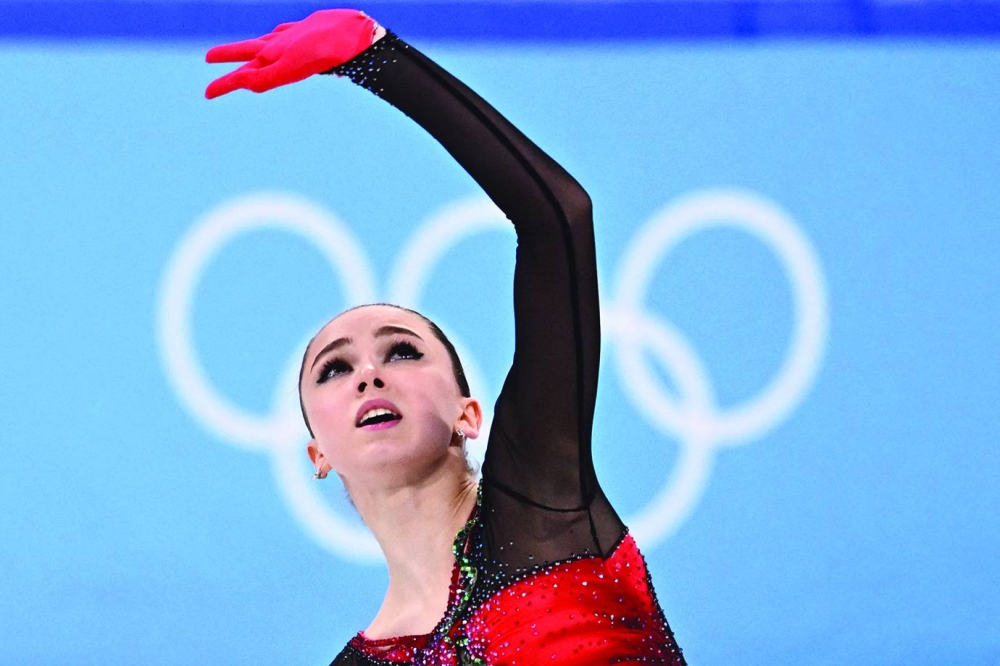Kamila Valieva’s doping ban has resulted in the Russia Olympic Committee team being demoted from the gold to bronze medal in the 2022 Winter Olympics team skating event, the International Skating Union (ISU) said on Tuesday.
The then 15-year-old’s positive test in December 2021, for which she received a four year ban on Monday, has led the ISU to perform “a re-ranking of the Team event” from the Beijing Games.
The USA has been promoted to the gold medal with Japan moving up to silver.
Canada will be disappointed as they finished fourth in Beijing and in other sports would have expected to be promoted to bronze.
However, unlike in athletics, the regulations of the ISU only provide for collective disqualification in the event of a positive doping control of one of the athletes during the competition, not eight weeks before as was the case with Valieva.
Her four-year ban from the Court of Arbitration for Sport (CAS) was confirmed on Monday.
In her defence, Valieva blamed “contamination by cutlery” she shared with her grandfather, who was treated with the drug trimetazidine after receiving an artificial heart, and who drove her to training every day.
However doubt surrounds the value of trimetazidine to athletes, which is normally used to treat angina, due in particular to its “numerous side effects” ranging from “gait disorders” to “hallucinations”.
In Beijing in February 2022, Valieva became the first female skater to land a quadruple jump in Olympic competition, as she helped Russia secure team gold.
The next day, she was told she had tested positive before the Games for trimetazidine.
From the start, the case has presented a dilemma. Valieva’s age should have guaranteed her confidentiality under WADA rules for “protected persons” younger than 16. Partly as a result of the Valieva case, the ISU is raising the lower age limit for its senior category from 15 to 17 from this year, citing the “physical, mental and emotional health” of competitors.
RUSADA tested the skater on December 25, 2021, as she won the Russian championships.
They sent the sample to the WADA-accredited laboratory in Stockholm. The laboratory found a minute concentration of trimetazidine but, delayed by the Covid pandemic, the result was not delivered until during the Beijing Olympics.
Under the pressure of suspicion and the worldwide media attention, Valieva cracked in the individual event in Beijing, stumbling four times in the free skate and finishing in tears as she tumbled from first to fourth.
At the end of the year, RUSADA ruled that Valieva bore “no fault or negligence” for the positive test.

Russia's Kamila Valieva. (AFP/File photo)
